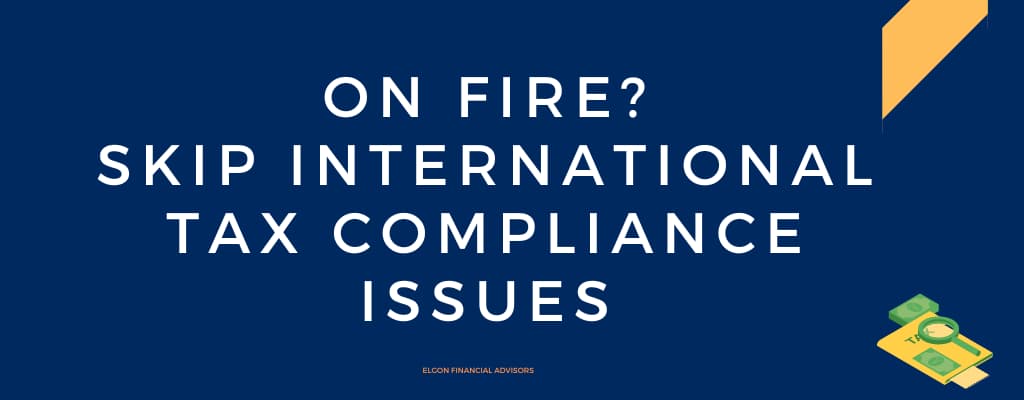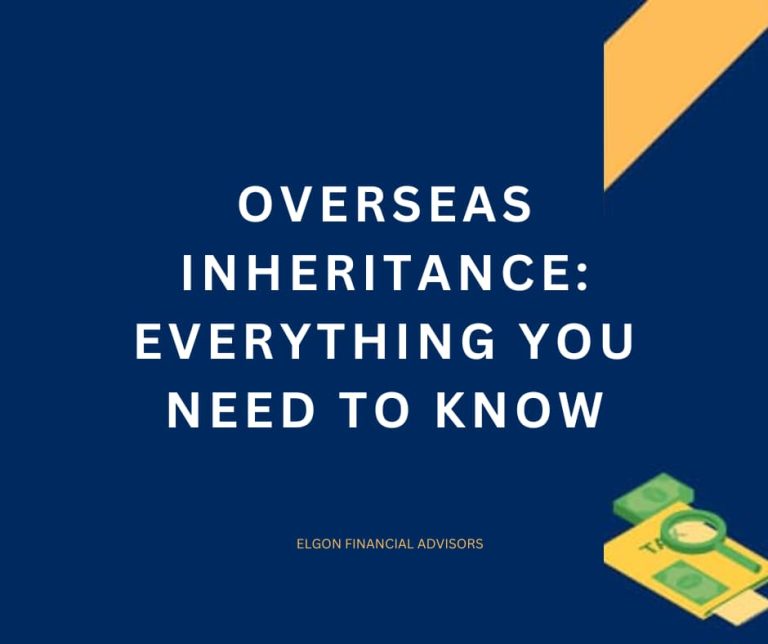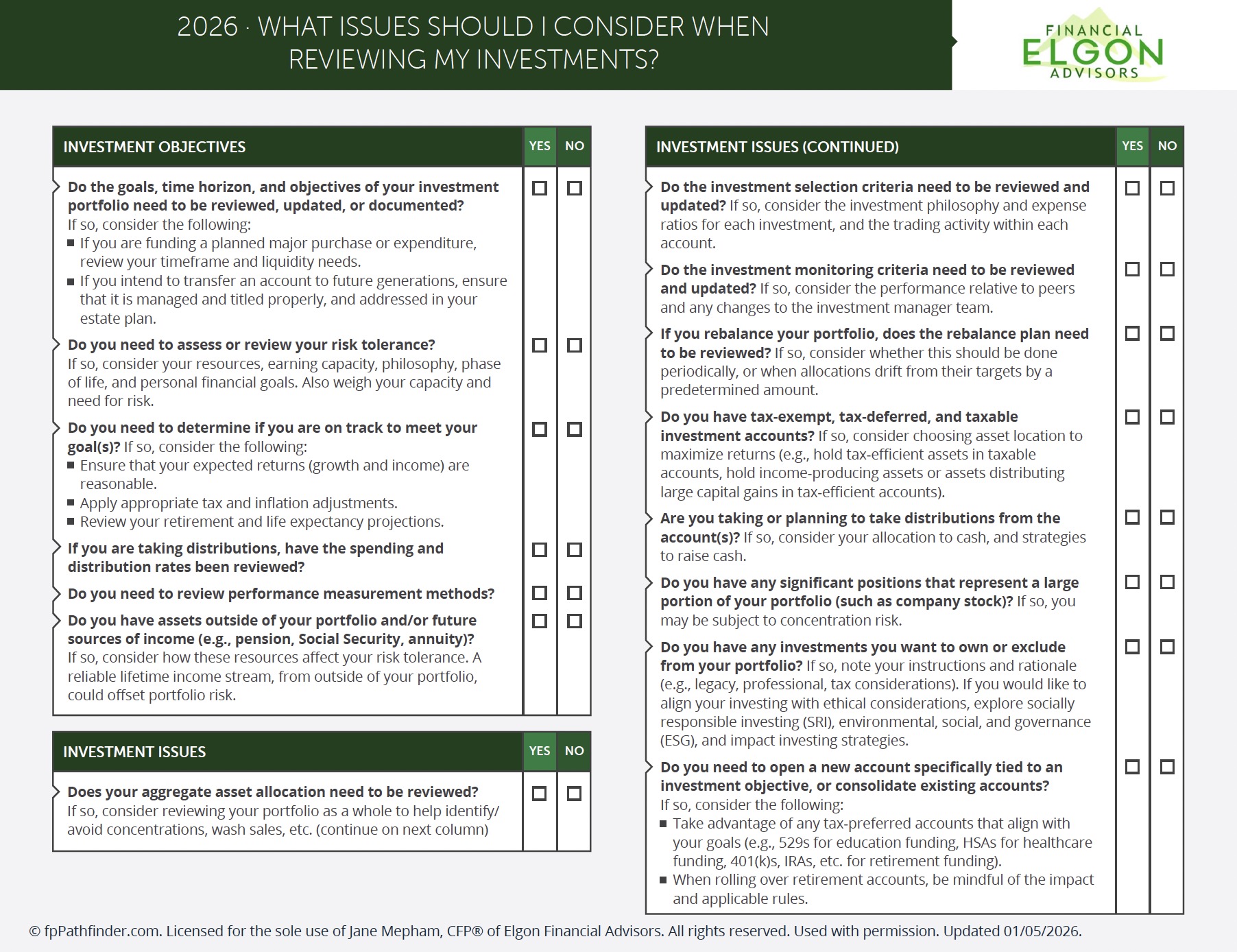Today, I’ll discuss how to stay tax-compliant with your overseas assets if you pursue FIRE on a work visa.

Last year, I worked with Andre on a detailed guide for FAANG workers in the US on work visas looking to pursue FIRE.
I described the challenges you will likely encounter as you work on your FIRE journey and offered possible solutions.
Since then, some people have reached out, and I’ve noticed a glaring hole in what’s happening with overseas assets.
Part of being able to successfully implement the FIRE strategy is saving or minimizing taxes. Having to pay tax penalties because of tax-compliance issues goes against that.
Investing in your home country may be a part of your strategy when you are considering leaving the US soon. But there are tax reporting requirements, and I see a few misses.
This can be very expensive due to the penalties imposed. And it can also impact your chances of becoming a US citizen if you choose to go down that path.
PS: One of the requirements for becoming a US citizen is being a person of good moral standing. Part of this is being tax compliant and how you answer the question, “Have you been compliant with the US tax law?”
So, in today’s post, I’ll discuss what you need to do to stay tax-compliant with your overseas assets.
I’m going to discuss the following items.
Worldwide Income Taxation
Foreign Assets Reporting
FBARS – Foreign Bank Account Report
Form 8938 – Specified Foreign Financial Assets
PFICs – Passive Foreign Investment Companies.
File Taxes On Worldwide Income – Stay Tax-Compliant
Once you become a US tax resident or a US person, you must file taxes on all your worldwide income regardless of where the assets are located.
You are probably a US tax resident by now, but in your first year in the US, you could be filing taxes as a tax nonresident.
That’s a great time to consolidate or simplify overseas assets if need be.
Overseas income can be generated by businesses, overseas partnerships, rental property, or anything else that gives you some income.
Keep in mind that if you are on a work visa like H-1B, T-N, etc., you can only be involved in these businesses (US and foreign) passively. Otherwise, you run the risk of being out of status.
There is a genuine fear of being double-taxed, but tax treaties may mitigate some of these issues.
In addition, your tax professional can use the foreign tax credit to mitigate some of the issues once you’ve paid taxes on foreign-sourced income. Regardless of the situation please report everything (all your income).
If you leave the US on a green card and you stay outside for more than a year, you could lose your permanent residency.
However, this does not change your tax status. You are still considered a US tax resident, and you must continue filing taxes on your worldwide assets.
If you don’t give up the green card correctly (filing specific forms and submitting it to the US government) you could find yourself being treated as a covered expatriate which has its own set of issues.
Other Filing Requirements To Be Tax-Compliant
FBAR Filing
The FinCEN 114 form commonly known as the FBAR is one you might be familiar with. You need to complete this form anytime the combined balance of your overseas financial accounts reaches $10,000 for a single day.
There are no taxes due; it’s simply a reporting requirement.
This number is very easy to hit unwittingly.
Example 1: You send money overseas to your cousin; it hits your account first, which has some money. Added to your other smaller accounts, you suddenly have 10k+ under your name. Two days later, you move the money to your cousin’s account. Guess what? You must file the FBAR when you file your taxes the following year.
Example 2: Your dad adds your name to his account back home, giving you full access. He’s been wanting to start sharing his wealth, and he figures this is one way of doing it. The account has more than 10k.
Your dad will probably hate it, but you must file the FBAR the following year.
The accounts in question include brokerage accounts, bank accounts, insurance accounts, etc.
The form is due April 15th with an automatic extension to October 15th.
Failure To File The FBAR, Failure To Be Tax-compliant
Failure to file the FBAR is a clear case of not being tax-compliant with an overseas asset. It can cost you up to 50% of the account’s value in penalties.
In a recent case, Bittner V. United States the Supreme Court ruled that the penalty is per form, not per account – in case you have multiple accounts you did not report. The key thing is, there are penalties involved.
It’s no use hiding, as foreign banks are eager to tell the IRS what you own due to FATCA rules. If they (the foreign banks) fail to comply, it could cost them up to 30% of the account value.
I found out a while back just how eager the banks are to tell on you. Here is my story with my overseas bank, telling me how they’d report me and others to the IRS. Is the IRS reading your mind Re – your foreign accounts?
(PS: I have overseas accounts like most of you and go through the same reporting requirements yearly).
Form 8938 – Statement of Specified Foreign Financial Assets
This is the next form filed with your taxes to report overseas assets.
The form is used to report certain overseas assets. The definition I have seen from CPAs of these assets are is – a specified foreign financial asset is any financial account maintained by a foreign financial institution.
The current reporting threshold is 50k on the last day of the year or 75k at any point during the year – if single and twice that much if married.
Failure to file this form can cause some serious penalties.
According to the IRS, if you fail to file this form, you could be subject to a penalty of up to $10,000 and an additional penalty of up to $50,000 for continued failure to file after IRS notification. In addition, there could be a 40% penalty on understatement of tax attributed to non-disclosed assets.
Some assets must be reported on both forms (FBAR and Form 8938), but the information required on either form is different.
Getting Tax Compliant With Overseas Assets
If you have missed filing these forms at any point, all is not lost. The IRS is aware of the fact that there are people who have not filed and has provided a solution that will allow you to be tax compliant.
It’s also not unusual for many people to be completely unaware of the filing requirements. I have seen quite a few people go through what I’m about to describe.
You have a chance to rectify the issue through the Streamlined Filing Compliance Procedures. This is an IRS process that allows you to amend previous returns.
It’s best to contact a tax professional who understands the process to help you rectify things.
Passive Foreign Investment Company (PFIC)
Last week, I had a conversation with somebody who’s been investing in Indian Registered Mutual funds, and I had to explain to them why this was not a good idea for somebody living in the US.
In our desire to diversify, many people are investing back home in assets they are familiar with. This is one type of asset you don’t want.
Most foreign-registered mutual funds or ETFs fall into this category. They are called PFICs (Passive Foreign Investment Companies).
Previously, people used this type of foreign corporation to avoid paying taxes in the past, but this changed in 1986 when the IRS implemented new regulations.
To discourage their use, the IRS taxes them punitively at the highest rate. They are reported and taxed via IRS Form 8621, which is very complicated to complete.
The IRS estimates that each form (each fund needs its form) may take more than 40 hours to complete.
It’s a form most tax professionals don’t like at all. If you need to complete this form, it’s probably best to do it with the help of a tax professional and then make a plan to get out of these investments and get into something different.
If the funds are in a retirement account and there is a tax treaty between the US and the foreign country, they might be exempted from the PFIC reporting, but you might still need to complete the other forms.
Conclusion
Investing in your home country on your FIRE journey in the US is okay. Just ensure you stay tax-compliant with those overseas assets by handling the above issues.
Originally published here: Don’t Ruin Your FIRE Strategy with International Tax Compliance Issues.
Need Help With Your US Finances?
Check out our process, which will help you evaluate our services and let you make an informed decision about working together.
Get Started Now
If not ready to start, that’s okay, but please stay on top of our regular updates by email, or by joining here. Sign Up Here .

6 Things to Do
When Starting A Job on H-1B Visa
You are starting a new job on a work visa, there are some critical things, that will set up for financial success in the first 3-6 months. Download the free guide below for the detailed list!
We never spam. By signing up you’ll also receive access to future resources right to your inbox.
Disclaimer: This article is provided for general information and illustration purposes only. Nothing contained in the material constitutes tax advice, a recommendation for the purchase or sale of any security, investment advisory services, or legal advice. I encourage you to consult a financial planner, accountant, and/or legal counsel for advice specific to your situation. Reproduction of this material is prohibited without written permission from Jane Mepham and all rights are reserved. Read the full disclaimer here.






